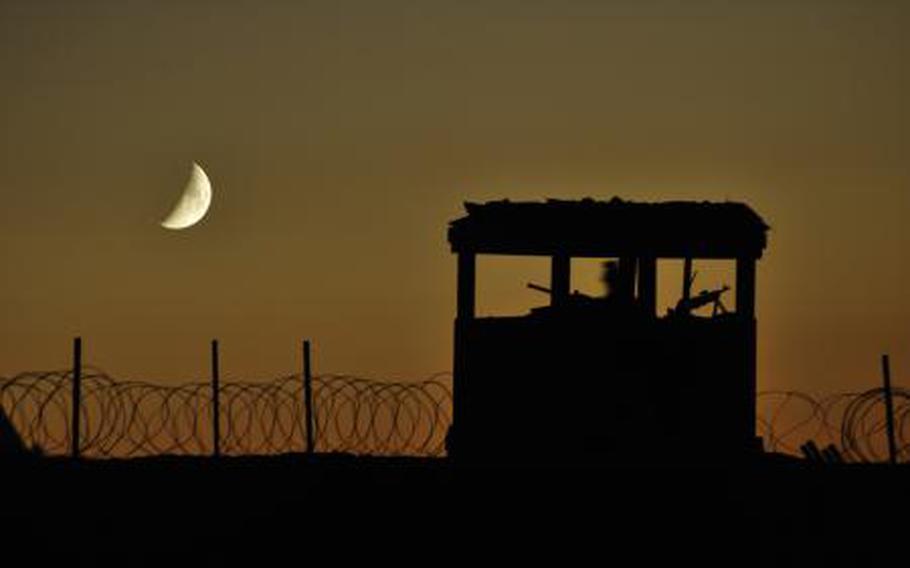
A soldier mans a security outpost at a construction site on the eastern edge of Khavejeh Molk, Afghanistan. Beginning next year, deployments for most troops will last nine months rather than the current 12 months. (Michael Watkins/Department of Defense)
WASHINGTON — After a decade of war, the Army said Friday it could fulfill its mission while easing the strain on soldiers and families by shortening deployment length.
Beginning next year, deployments for most troops will last nine months rather than the current 12 months. At the height of the Iraq troop surge, deployment time for many troops had crept up to 15 months.
Among other ill effects, increased deployment time increases the risk of divorce and contributes to learning and behavioral problems in children of military parents, various studies have shown.
The deployment announcement is not a result of impending troop withdrawals from Iraq and Afghanistan, said Army spokesman Lt. Col. Craig Ratcliff. Rather, he said, it’s the result of studies showing how to effectively deploy forces while making the wellbeing of soldiers a priority.
“The demand [for troops] is continually in flux, but the Army determined this is doable now, and that it’s the right thing to do for the soldiers,” he said. “The leadership wants to reduce the stress on soldiers and their families and provide for their quality of life.”
One aspect of the new policy might prove less than welcome: soldiers on nine-month deployments won’t get regular mid-tour leave. But commanders will have leeway to grant leave for emergencies and special circumstances.But the policy change won’t affect those deploying before Jan. 1, and the deployment period for certain units as well as individually deployers will remain at a year, the Army said. Changing global security conditions that increase demand for troops could also put the policy on hold.
Dwell times also are not mentioned in the order, although Ratcliff said that as the shortened deployment takes hold, dwell times are likely to improve as well.
“Over the long term we’re on a glide path to increasing dwell times,” he said.carrollc@stripes.osd.mil
Twitter: @ChrisCarroll_